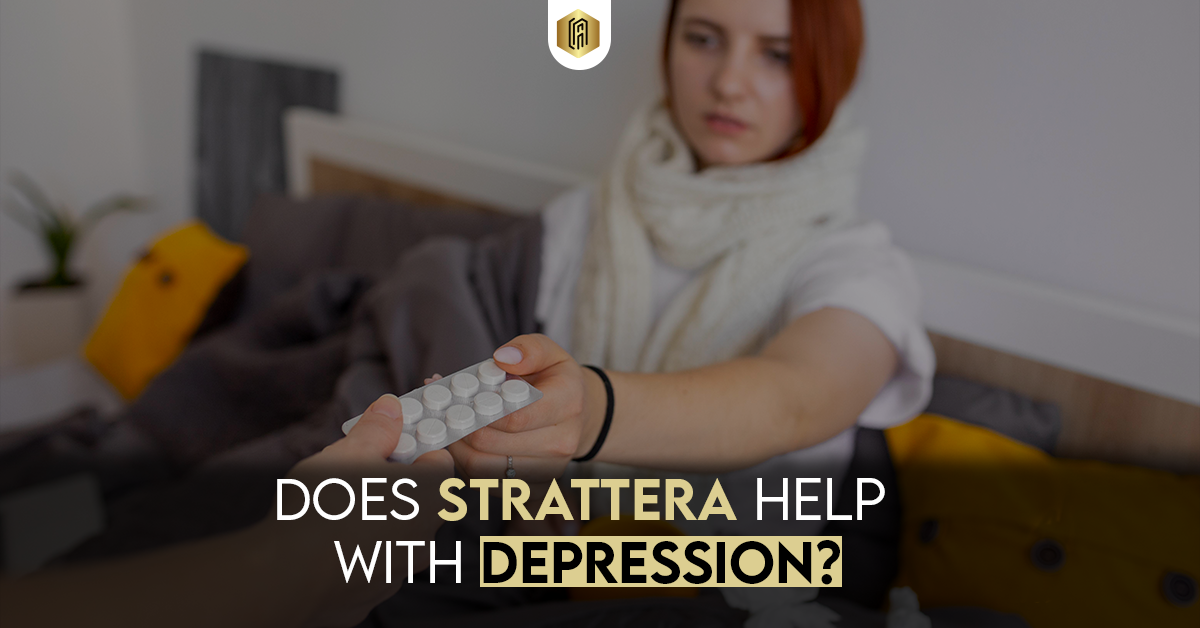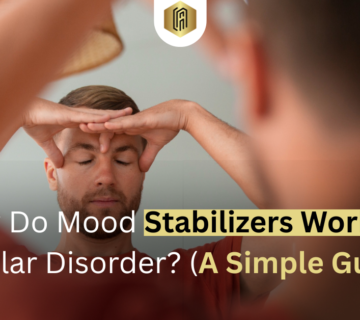Various Americans face challenges with depression, and finding the ideal solution can be tough.
There are many medicines for depression. But, some doctors and patients have explored other options, like Strattera.
So, the query is, does Strattera help with depression?
Facing mental health issues, like ADHD and depression? Ascension Psychiatric Services is set to guide. Don’t wait to contact for skilled support today.
What Is Strattera?
Atomoxetine, known as Strattera, mainly treats ADHD symptoms. It is a vital choice for handling ADHD.
Its job is to increase norepinephrine levels in the brain. This chemical helps in staying focused and alert.
Now, unlike typical ADHD medicines, Strattera isn’t a stimulant. So, it stands apart from choices like Adderall or Ritalin.
Can Strattera Be Used for Depression?
Strattera’s Off-Label Uses
Even though Strattera isn’t officially classified as an antidepressant. It is sometimes authorized off-label for mood fluctuations.
Research indicates atomoxetine may benefit some depressed people, especially those with ADHD. However, studies are not complete
Strattera is not the top choice for depression treatment. It’s crucial to consult a health expert for a thorough evaluation and decision.
Other Off-Label Uses of Strattera
In addition to depression, Strattera off-label uses include:
- Generalized Anxiety Disorder (GAD): It helps some users reduce their anxiety symptoms.
- Fatigue Syndromes: The drug’s energy energizing could help with conditions that cause severe fatigue.
- Cognitive Issues: People with focus-related challenges outside of ADHD may benefit.
These uses show Strattera’s versatility. However, more research is needed to confirm its safety and effectiveness for conditions other than ADHD.
Let’s take apart how Strattera for depression can work.
How Does Strattera Work?
Strattera has its focus on norepinephrine. This chemical affects our mood, energy, and concentration.
With depression, there can often be an uneven mix of these brain chemicals. Medications such as Strattera, which affect these chemicals, could be helpful.
We might then ask; can Strattera help with depression? Science hasn’t given a final answer yet.
However, some people with ADHD and depression felt happier after using Strattera.
Strattera as Antidepressant
Strattera isn’t typically viewed as an antidepressant. However, Strattera is sometimes used differently by physicians to manage mood conditions. Here’s the reason:
- Dual Diagnosis Treatment: People with both ADHD and depression can find relief, as Strattera calms symptoms for both.
- Fewer Side Effects: Being a non-stimulant, Strattera often has less risk compared to common ADHD medications. This is especially handy for people who don’t react well to side effects.
- Mood Regulation: By keeping norepinephrine levels steady, Strattera might diminish depressive signs in some people.
But does this mean Strattera works for everyone? Let’s explore further.
Does Strattera Help Depression for Everyone?
Strattera’s impact differs among individuals. Studies show that atomoxetine for depression, might help when standard antidepressants fail. Yet, it’s essential to remember:
- Research Scope: Much of the research on Strattera and depression is limited and not definitively proven.
- Not the Top Option: As Strattera is formulated for ADHD, it’s typically not the initial pick for addressing depression on its own.
- Possible Side Effects: Strattera, like all drugs, has side effects that not all people can handle with comfort.
For individuals wondering, “Does Strattera help with anxiety and depression?” It may be based on their conditions and overall health.
Strattera Side Effects Depression: What to Watch For
Strattera offers numerous advantages, yet it also carries potential downsides. Below are some usual ones to be mindful of:
- Mood Wings: This may include irritability or restlessness.
- Appetite Changes: These often lead to weight loss.
- Sleep Disruptions: Exhaustion is typical with this medication.
- Digestive Issues: Nausea and intestinal distress might occur.
- Dizziness: You may feel lightheaded.
- Heart-Related Effects: This includes an increased heart rate and palpitations.
- Dry Mouth: Excessive sweating is also a frequent complaint.
While rare, some serious reactions can happen, such as:
- Liver problems
- Allergies
- Worsening psychiatric symptoms
Keep a close watch for differences. If something seems off, don’t wait, ask a doctor right away. Before starting any treatment, speaking with a healthcare expert about possible impacts is vital.
Long-Term Effects of Strattera for Anxiety and Depression
The long-term effects of Strattera for anxiety and depression are still under study. Some patients benefit last while others might need to change their approach.
If you’re thinking about Strattera, keep this in mind:
- Regular Check-Ins: Chatting with your health specialist frequently is vital.
- Supplementary Therapies: A mix of drugs, therapy, or lifestyle changes often delivers the best results.
- Time: Give Strattera sufficient time to determine if it helps with your depression.
Questions to Consider Before Starting Strattera
Before starting Strattera, consider asking:
- Can Strattera help with depression in my case?
- Are there alternatives to Strattera for depression?
- What side effects should I expect with Strattera depression treatment?
These conversations ensure you make informed decisions about your mental health care.
Conclusion
So, does Strattera help with depression? The reply is complex. Strattera might help some, especially those with ADHD and depression. Yet, it’s not a fix-all.
If you’re reflecting on Strattera for depression, consult your doctor. Discuss your symptoms and medical history. It will help us see if this medication is right for you.
Not every treatment works for all. However, trying options like Strattera as antidepressant might greatly improve your mental health.
FAQs
What sets Strattera apart from standard antidepressants?
Strattera’s approach involves improving norepinephrine amounts. This is quite unlike many antidepressants which aim at serotonin. So, it’s a special choice for those who are averse to serotonin-targeted therapies.
Can Strattera instantly treat depression?
Well, Strattera usually requires a few weeks to demonstrate significant results. It’s crucial to wait and consistently keep track while beginning this medication.






No comment